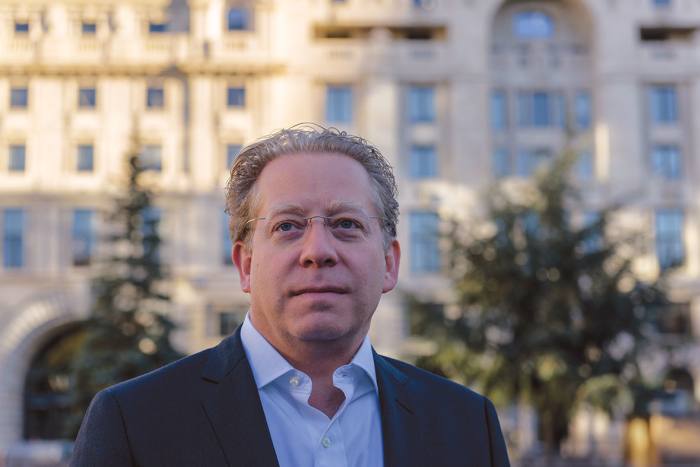
Investors in the UK have been piling into passive products, but exchange-traded funds (ETFs) still lag behind tracker funds when it comes to interest from advisers.
Research and consultancy firm ETFGI reports that assets invested in ETFs and exchange-traded products (ETPs) listed in Europe amounted to $556bn (£452bn) at the end of November 2016, which was also the 27th consecutive month of net inflows into the offerings in the region.
UK intermediaries, however, are still hampered by the lack of ETF availability on many platforms. So while Dave Abner’s job as head of Europe for ETF provider WisdomTree may look easy, there are challenges in the continent’s largest market.
He took on the role when Hector McNeil, the former co-chief executive of WisdomTree Europe, departed last year. Mr Abner says his goals are much the same as when Mr McNeil was running the business, in that he is “helping to inject some more ‘WisdomTree DNA’ into the business” in the region.
He explains: “WisdomTree has always been known as being innovative and developing investment products for investors, with sophisticated intellectual property behind our products. Many of these are weighted by dividends and we were one of the first providers to bring currency hedging to equity baskets in ETF form.
“In the US, we have brought the first suite of fundamentally weighted fixed income products to the market. In Europe, and in the UK in particular, we have two main focuses in our Ucits range: we want to bring some of the innovative and best products WisdomTree has created from an intellectual property standpoint in the US to European investors. They typically like a Ucits wrapper, so we are going to bring funds in that wrapper.
“At the same time, we are going to continue the WisdomTree legacy of being innovative and finding places where investors have problems, but which we can bring solutions to the market that just haven’t been brought yet here in Europe.”
Mr Abner relocated his family from the US – where the ETF industry is much more developed and familiar to investors – to London for the role.
“One of the features of the market [in the UK], which is very different than in the US, is that there’s no centralised order book, so not all trading takes place on the exchange,” he observes.
“[In the UK] a lot of ETF trading takes place in what we call the ‘over-the-counter market’, and trades that happen without the ability for ETF liquidity providers to compete is a disadvantage for investors, because competition drives spreads tighter and that is good for investors.
“Having a high percentage of trading taking place off exchange in the UK in particular is something that I’m focused on, having been a trader.
“[We] are trying to make sure our investors are getting the tightest spreads and the most liquidity in our products.”






